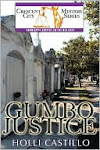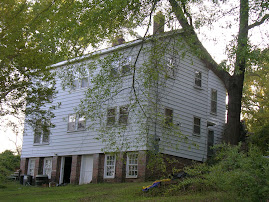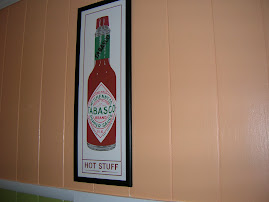

Historical R
 esearch Frenzy
esearch Frenzy by Barbara G.Tarn
I always had a wild imagination, and when I finished high school I didn't go to university. I loved the middle ages (probably because of the illustrations of my childhood fairy tales and classics such as Robin Hood) and started writing fantasy because, well, it was FANTASY, so I didn't have to bother with research. Yeah, I know, I was very lazy (and still am today most of the time).
Then I read "The lady and the unicorn" by Tracy Chevalier. I knew the tapestries well (I go to check them every now and then when I'm in Paris), but knew nothing of their history, and I enjoyed the novel take on that part of history. Hence I started researching, and discovered the Middle Ages lasted 1000 years, with lots of changes between Charlemagne and Cristoforo Colombo (sorry, I'm Italian, I'll use his real name. The end of the Middle Ages is officially 1492, so you know who it is). I had to find a more specific time if I wanted to tell a story.
At first I started going to museums. Me, the museum-hater, went to the Louvre galleries of 12th to 15th century painters, and did the same at the National Gallery in London AND the British Museum. I'm the castle-lady (each and every medieval castle open to the public must be seen by me), I'm starting to appreciate Gothic cathedrals, but museums... Cluny was really an exception, because the unicorn is my animal, and those tapestries are gorgeous! ;-)
Anyway, I was looking for a portrait of some anonymous (or not too famous) sitter to inspire me (although I didn't read "The girl with the pearl earring" you understand why I was doing it). Unfortunately there aren't many paintings left of the early Middle Ages (read: none at all. Statues and some manuscripts only).
Then I saw "Kingdom of Heaven" after reading a book about crusades and was appalled by the historical inaccuracy of the movie (check Balian of Ibelin on Wikipedia if you don't believe me). Now, I wasn't going to rewrite that story, but my mum is also a Middle Ages lover, and knows everything on the Arthur cycle and Tristan and Iseult, etc. And all those were started by Chrétien de Troyes in the 12th century. I was already playing with the idea of the minstrels and the crusades - Christianity vs. Islam being a theme still very heartfelt today.

I even found the picture of a 12th century statue called "Return of the Crusader" with this very intriguing caption: Return of the Crusader - Hugues de Vaudémont, who left in 1147, goes back to his wife - legend says he went on crusade and she waited for him faithfully for 14 or 16 years... That's the Second Crusade (1145–1149), and I'm following the third (1189–1192), but you get the point!
So I decided to write the life of a knight at the beginning of chivalry, when minstrels sang of long lost past, tournaments were melees and heraldic was barely starting. I settled for the end of the 12th century - Third Crusade, Richard Lionheart - and started researching more. I intended to close the story with the signing of the Magna Carta in 1215.
At the time I had just started writing in English, and I was writing screenplays as the form (the prose) was simpler for me. I started writing my story and by page 120 (in screenwriting one page equals one minute on screen, new writers are not allowed to exceed 120pages) the knight had barely started off for the Holy Land. I could either make it a TV mini-series (but I don't watch TV, nor have History Channel to check how they do it), or cut it to make it more of a movie. So I "cut" the story to nine years (knighthood, crusade, return) and sent it to a coverage service.
Reading some of the objections by the poor reader, who obviously hadn't spent two years reading ancient medieval chronicles in Old French and Latin or English 19th century translations, I gave up the project and put it in a drawer - OK, I'll admit my thought was "Those Americans have no sense of history whatsoever". I apologize.
Then I gave up screenwriting altogether and tried prose in English. My main genre is still fantasy, but in these two years I've earned enough confidence that my prose will sustain an historical novel. The narrator is slightly more omniscient than in any other genre, and I can start when the hero is two and end shortly after his death like I originally intended (his son will sign the Magna Carta for him) without bothering of being misunderstood by some Hollywood reader.
So next year I'll brush up my notes and my screenplays, will do a little more research on topics such as clothes (that would be the costume designer duty on a movie set - my job if I write a novel, sigh) and write my story. Then I will send it to a few agents and see if I can publish it traditionally (the fantasy will be self-pubbed e-books).
I hope to make those years (1166-1215) come alive for readers, trying to be more historically precise than Sir Walter Scott and other 19th century "historical" novelists. I have learned to love my research when I found little gems that I could incorporate into my story when reading those old chronicles. I'll probably try to interview some reenactors as well, because even if I own two medieval costumes that I use for medieval dinners, and a sword, I never really used them, while I know there are people out there who reenact tournaments and other medieval events and are even more passionate than me about that time.
It's a story of love, friendship, faith and betrayal that hopefully will be appreciated everywhere, even if it's set between France, England and the Holy Land. I know I will write more historical novels in the future, but I still have to pick up another time period (Italian Renaissance? Mumble mumble...). I jotted down people and/or events in my "history" notebook for future use, but we'll see. I look forward to next year and my brand new adventure.
Barbara G.Tarn is a writer, artist and world-creator. She hopes to reveal the might of her world, Silvery Earth, as soon as technology allows her. Or maybe she'll turn into an historical writer, who knows. In the meantime she writes, draws, ignores her day job and blogs at http://creativebarbwire.wordpress.com/









7 comments:
Amazing, as always. Thanks Barb!
Hey Holli, nice to be here on your blog.
Barb, I'm a history buff too. My first book was a historical fiction novel. The research I did was so fascinating and absorbing, I loved it.
I thought Kingdom of Heaven was appalling too but not so much because of the historical inaccuracy. I thought it was appalling because of the shocking acting and bad story telling. Ridley Scott needs to retire. He's embarrassing everyone.
Jai
Thanks, Mickey and Jai for stopping by. Barb's background is fascinating, especially for someone like me who has never been outside the U.S. (unless you count Mexico, but it was only for a few minutes and then I scrambled back across the border to Laredo in fear for my life. But that's another story.)
Holli Castillo
Wow, how exciting a life you lead. I love old houses and museums--but only those in the states, I've never been to many places either--my adventurous traveling has been limited to Mexico, Hawaii, and Alaska. Though in Alaska I did visit a small village that you could only get to be driving on a frozen river. (Much too exciting.)
Anyway, how fun to read this post and best of luck with your writing.
Marilyn
Get thee over to Shelfari's Historical Fiction group! Those people can help with research and will buy the finished book. Awesome crowd.
When I want to take a break from mysteries, I pop in a historical fiction read. My guilty but educational pleasure.
Marilyn, I guess I'm lucky to be European and visited some of it (lived in other countries besides Italy as well( and explored it before heading to explore the US. Getting to the Louvre in Paris is closer than getting to, say, the Metropolitan (which I shunned to buy the ticket to the Empire State Building instead... *blush* but I went there once, at the Cloisters, as my father's hometown church door is there)...
Sunny, will check them, thank you!
Barb
Fascinating! You've given me an interest in the Crusades I never had before. Good luck with your writing!
Monti
MaryMontagueSikes
Post a Comment